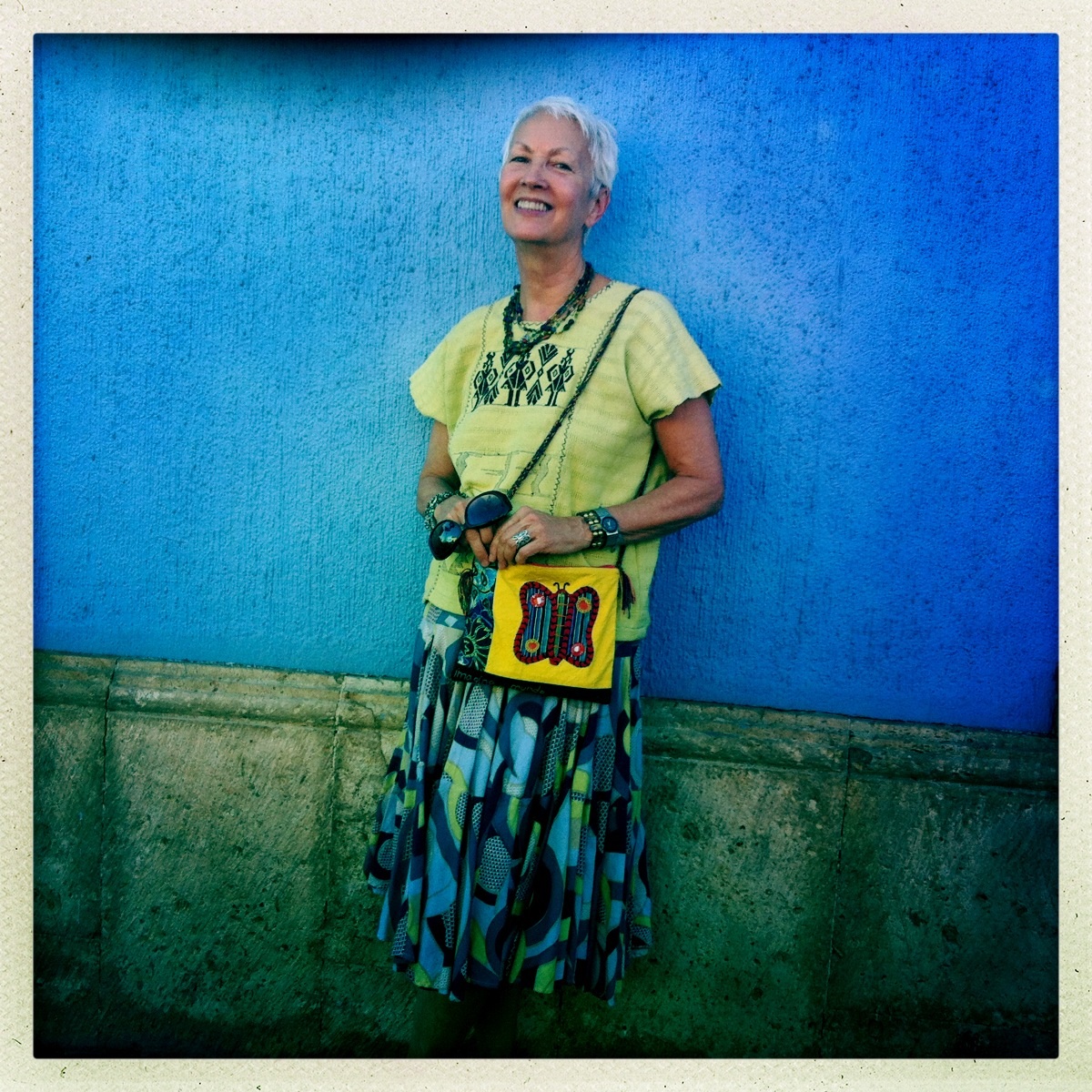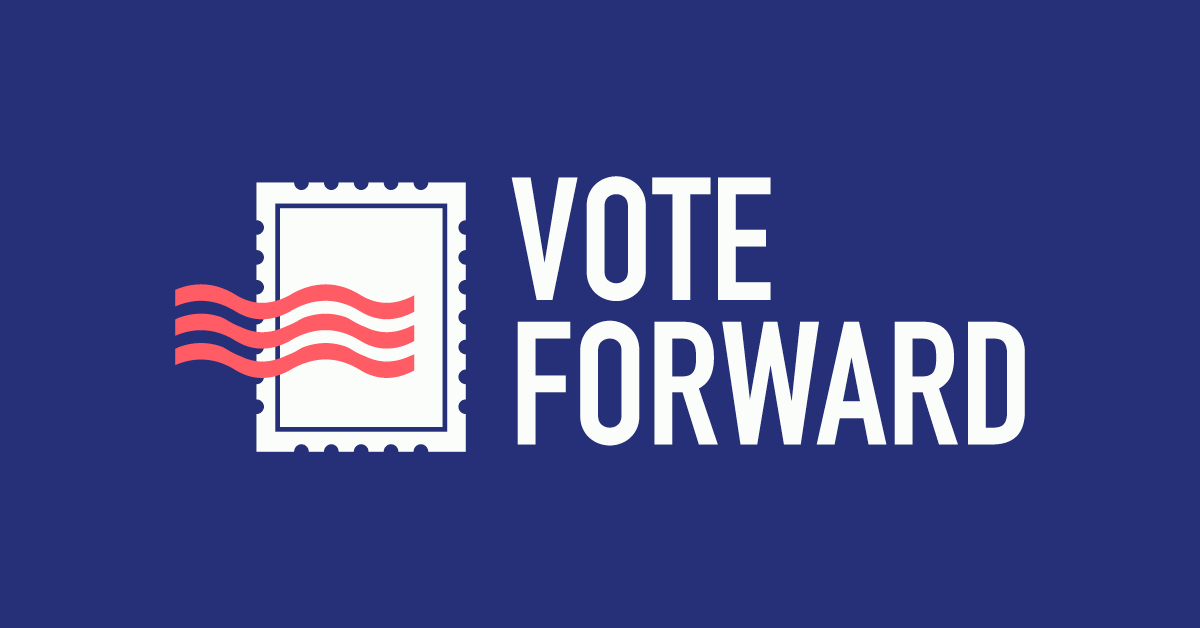These days I am desperately hoping that Mr. Trump or one of his close family members contracts the coronavirus, so he will finally understand that this is not just a political football he can toss around to manipulate voters.
There, I’ve said it. And what a horrible thing to wish upon another human being. But it is clear from our president’s behaviors—flying around the country, refusing to wear a mask, encouraging protesters, insisting that the economy be reopened despite scientific experts’ recommendations—has no regard for human life. Isn’t that ironic? A politician who is “pro-life” and has done all he can to restrict women’s access to abortion cares nothing for the 69,079 people who have died from it (according to Johns Hopkins’ May 5 statistics). The University of Washington’s highly regarded statistical model is now suggesting that 134,000 Americans will die of COVID-19.
I feel just as I do about Mr. Trump about the protesters showing up maskless at state capitols, some toting guns, to proclaim that their civil rights are being violated by shelter-at-home orders. I cannot believe that any of those protesters has had the coronavirus, or have watched a family member or close friends suffer or even die from it. I wish the protestors would have that experience, so they, too, would understand that this is not about politics. This is about our survival as individuals, as a country, as the collective peoples of the planet.
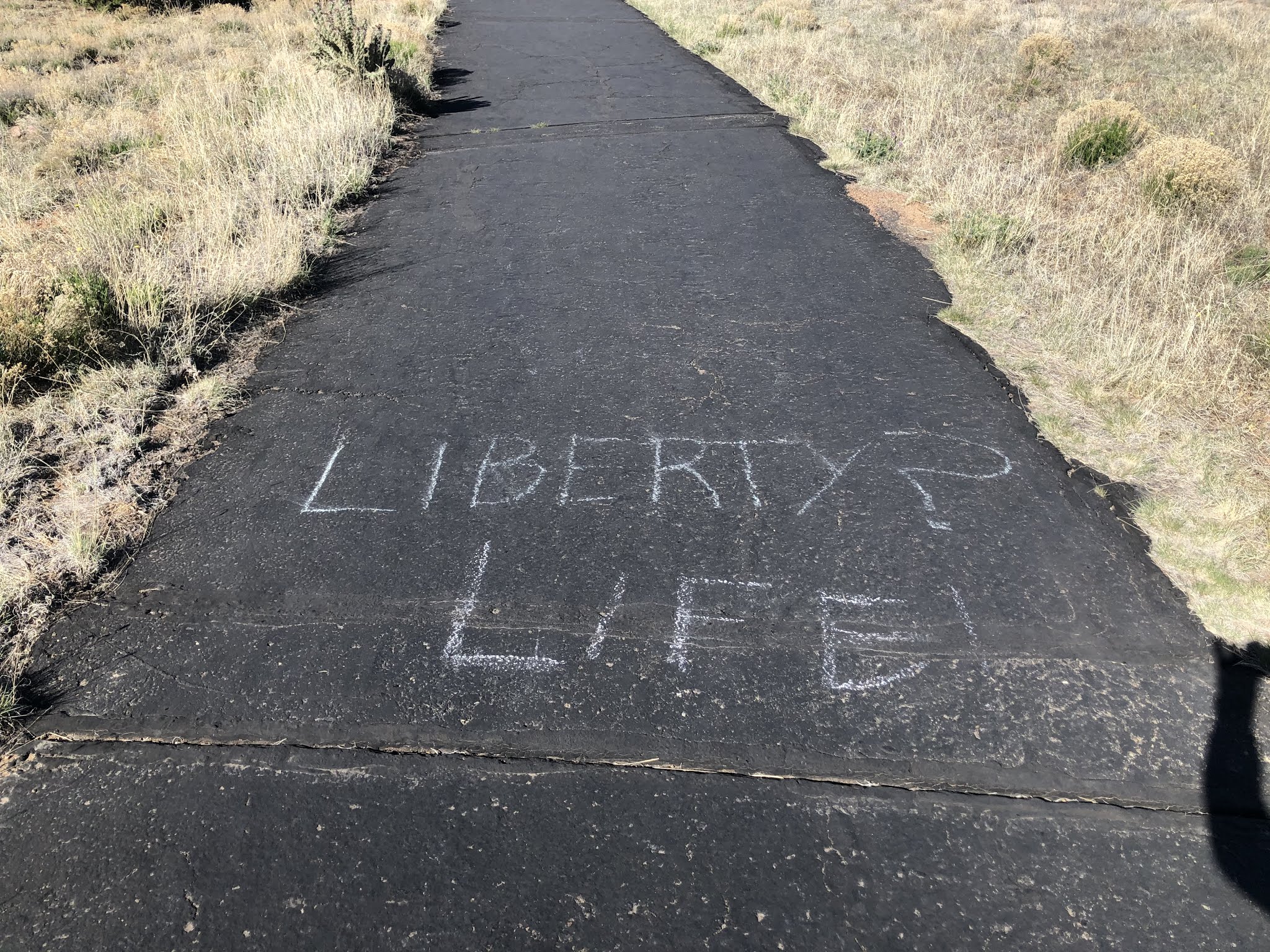 |
| An exchange between neighbors on the trail, in chalk. |
I feel shame for wishing illness on people, but that is my truth, today.
And I know the virus will eventually do what my words cannot.
I am angry. I am really angry. What has become of our society? How is it that we care so little for ourselves or others that we will wantonly ignore sensible restrictions, even for a short time, in order to save ourselves and others from this horrible disease? How is it that people can refuse to believe they are vulnerable? How is it we can find it acceptable that “old people” and the medically fragile or vulnerable will die? How can the protestors pretend that science is wrong, when we have had in our lifetimes concrete evidence that science is right (SARS, HIV, polio, etc.)?
Here’s another reason I’m angry. I’m angry at myself. On more than one occasion recently, I’ve been confronted by people who were ignoring safety protocols, and I didn’t call them out on it, even though they were risking my life as well as theirs.
A worker came to meet me (for reasons too complicated to explain here) and showed up without a mask. (I had on a mask. But we know that even if everyone wears masks, there is no guarantee of safety.) He was actively chewing gum. I could practically see the aerosolized drops of his saliva flying through the air. This man was 70-plus and I happen to know he cares for a medically fragile wife. I do not know him personally. But I wanted to scream, “Are you crazy? If you choose to risk you own life—if it were possible to risk your own without endangering others—I could accept that. But you are endangering not only your own, but your wife’s as well. And if you get the virus, and/or if you die, who will care for her? If you pass it to her, she is one of those who will likely die the horrible death that this disease metes out. Why would anyone do such a thing? And now, you jerk, you are also risking my well being, too.”
While we were conducting our business (I couldn’t wait to get away from him), another worker arrived. He, too, was maskless.
Holy Mother of God, save us from stupidity.
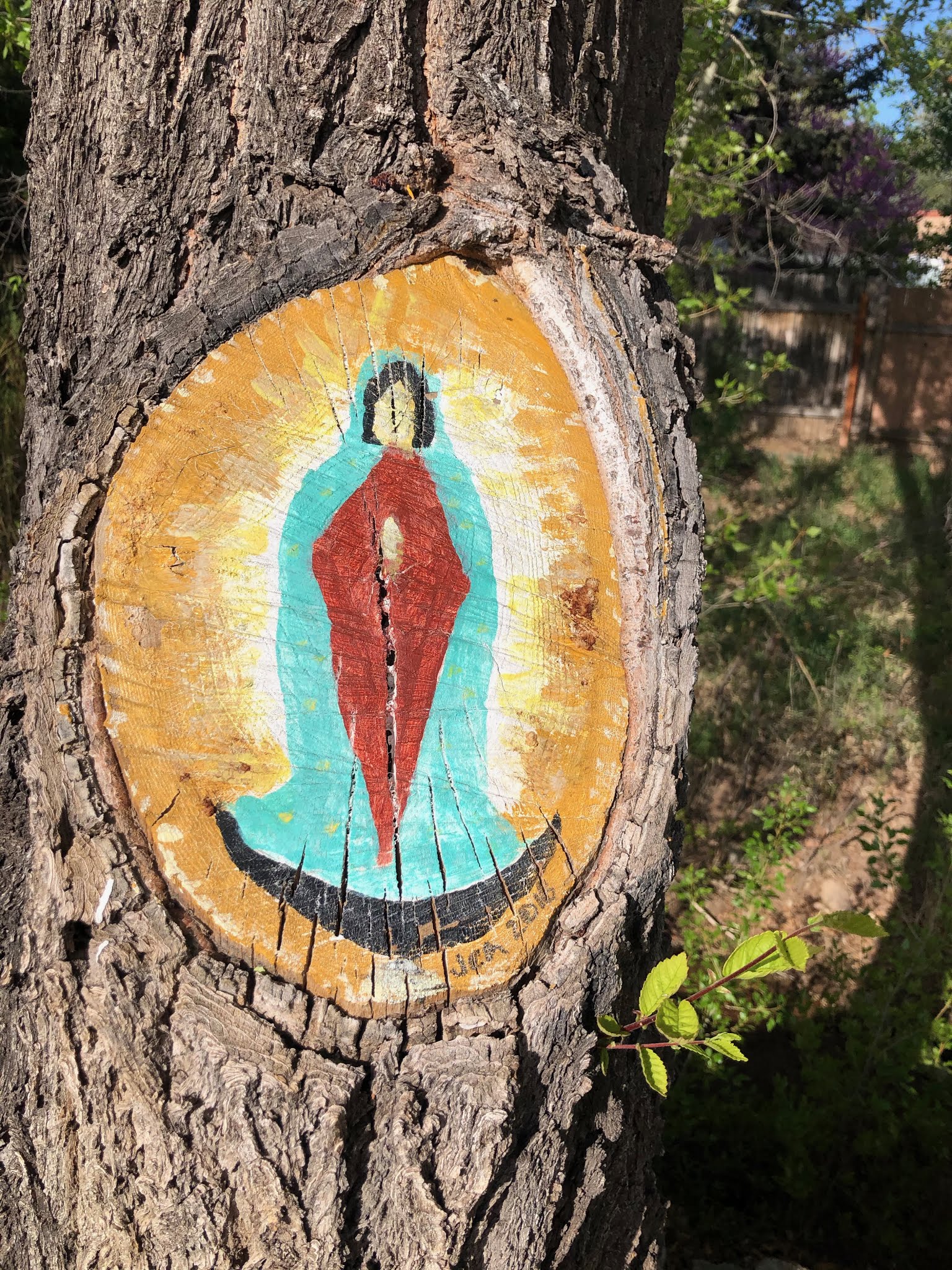 |
| The Holy Mother, on Santa Fe’s east side. |
I had to go to a UPS store to pick up a package that was not delivered to my door, for some reason I cannot fathom. The clerk was not wearing a mask. I politely asked him why. After all, he has direct, face-to-face contact with people all day long—that’s his job.
He laughed. “We don’t have any. If you have one, I’ll take it.” I just stared at him. I wanted to scream, “Get a bandanna, buddy.” (Luckily, our brilliant Gov. Michelle Lujan-Grisham is ordering workers in all essential businesses to begin wearing masks effective May 11.)
But I didn’t scream. I just seethed internally.
In both of these instances, I felt conflicted by my commitment to civility and respect for others’ autonomy and my own desperate, primal need to survive. And of course, as a woman, I’ve been culturally inculcated to be polite at all costs, to be a “nice girl.” At 63, I’m still struggling with that. Sigh.
I admit that there have been times I have not worn a mask on the hiking trail and at my community garden. I can easily maintain big social distances between myself and others in those circumstances, and move away from people if I feel I might even possibly get within the danger zone. I step off the trail and turn away as others pass, for example. I’m not a paragon of virtue, but I’m doing my best to avoid endangering anyone. How do I know I’m not an asymptomatic carrier of the disease? How do I know they aren’t?
I’m going to have to figure out how to deal with my anger. It’s so unbecoming a minister. Right now, I am taking two walks a day, and longer ones at that, in order to reduce my stress level. (And as we know, high stress decreases immunity!) I am also eating more carbs, soothing myself with those lovely brain chemicals release by sugar. But perhaps I am not yet entirely willing to let go of this anger. Maybe it’s fueling something good within, something I can’t yet put my finger on.
We are all in this together. Our survival now depends more than ever on our willingness to do what is best for everyone, not just ourselves. This is not communism or socialism or any other –ism. This is not the time to let our perverted identity politics split us apart.* This is not about guns, or abortion, or religion, or civil rights. This is not about Trump. And Hillary Clinton did not cause coronavirus.
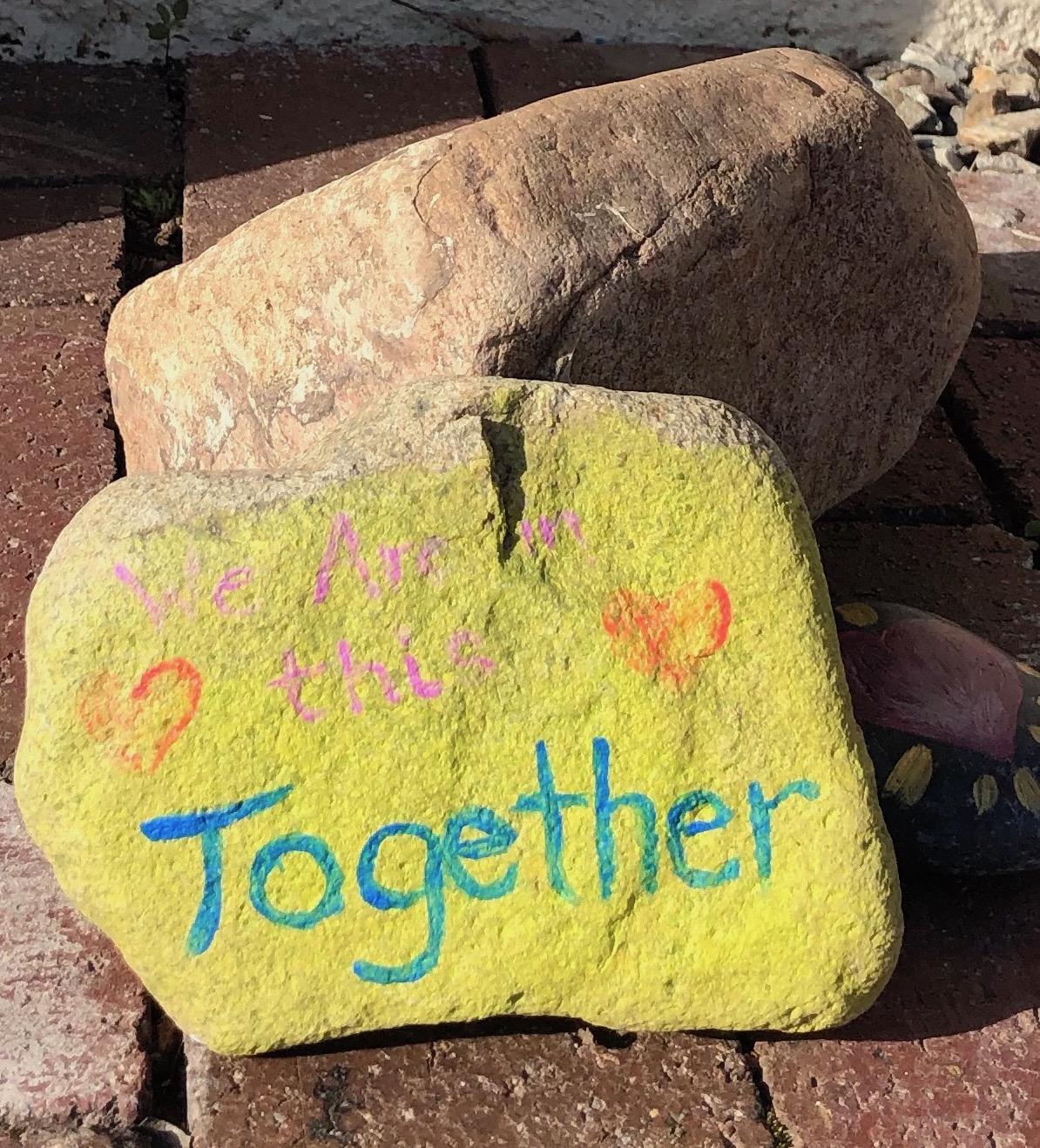 |
| Also spied on a walk in Santa Fe’s east side. “We are in this together,” the rock says. |
This is about having empathy, the capacity to care for others as well as one’s self. This is about having the common sense to see that the survival of the individual depends upon the survival of the whole tribe—and vice versa. This is about love, not hate.
Somewhere along the way in this mess, the director-general of the World Health Organization tweeted that we should greet one another with a hand on the heart rather than a handshake. What a beautiful gesture. It feels akin to the Hindu custom of pressing hands together, prayerlike, bowing slightly, and saying, “Namaste,” which means, “I bow to the divine in you.”
I like the hand-to-heart gesture even more, as it has no religious reference at all. I am going to begin doing it, especially to replace the awkward act of holding my arms out in what I’ve been calling a “virtual hug.” Putting my hand to my own heart could mean we are thus connected, by our hearts. It’s not an unfamiliar gesture, either. Don’t we put our hands on our hearts when we say the Pledge of Allegiance?
Can we be in this together, despite anything we might think or say or do? Can we demonstrate empathy for one another, for everyone? Can we stop blaming anyone for what is simply an organism, another form of life that happens to be deadly to our species? Can I stop wishing this disease on others?
As I wrote those words, I felt my anger ease, my breathing slow, my shoulders relax. I cannot put my hand on my heart and maintain my anger. Maybe this can be a new ritual that can help me, help us all, going forward. When I greet you, or say goodbye, I can put my hand on my heart, and say to myself, inwardly (or even aloud, if I have the nerve): Here is my heart. I offer it to you. Will you offer yours to me?
I want to end with some beautiful words written by a student at the Chaplaincy Institute, the seminary I attended and at which I taught a class a few weeks ago. Stephanie Kroner wrote this as a chant, and led the class in singing it together on Zoom (with microphones off at first, so each of us heard our own solo voices, then with mics on, so we could experience the crazy audio discordance of our distance from each other):
What we have is this moment
What we have is this time
Luminous, vibrant
We are here
We are alive.
—Stephanie Kroner
*If you haven’t already, please read Why We Are Polarized, by Ezra Klein, the cofounder of Vox and a brilliant journalist. It is the most cogent, well-researched explanation of our current dilemma I’ve read.


